Photographs: Parth Sanyal/Reuters.
The Bhartiya Janata Party (BJP) criticised the government for a total policy failure that has resulted in a grave economic crisis.
Piyush Goyal, Chartered Accountant and Treasurer, raised issues regarding the Finance Bill and lashed out against the government for lack of reforms, no focus on energy security, no investment in infrastructure, agriculture, health and education.
Excerpts from his speech in the Rajya Sabha.
It is a sad day to have this debate listed in this House, because the first thing we do when we get up early in the morning is to read The Economic Times, and right from page 1 to the last page all you read is 'Economic gloom to deepen: India Inc.', 'No Confidence on Business and the Political Economy', 'Foreign investments expected to slow down', 'Populism to worsen', 'Low on confidence; low on certainty', 'A Wake-up call for UPA'.
There is nothing in this newspaper, which would give some confidence to me or, bring some enthusiasm to a young man like me, who is looking to investing in India and looking to the future of India.
As they rightly say, Moody's add insult to injury. The rating of three of our best banks is downgraded and brought at par with the sovereign rating which, in the first place, is not something to be proud of.
...
BJP blames UPA for the economic crisis
Image: A farmer works in a wheat field against the backdrop of residential apartments undergoing construction in Noida.Photographs: Parivartan Sharma/Reuters.
The rupee stays in a hole at Rs.53.97 to a dollar. There is nothing to enthuse the world. There is nothing to enthuse the Indian investor. There is nothing to enthuse even the middle-class, the poor people, and the corporate world.
Nobody is enthused in the present economic climate in the country.
I can only appeal to the Finance Minister to look at those recommendations in the true letter and spirit. Do not let them get bogged down in bureaucratic hurdle which typically happens when good ideas or good recommendations come to the political leadership of the day.
We have just celebrated 60 years of the Indian Parliament. This is also a time to reflect, as we did on Sunday, on the state of the Indian economy.
After Independence, we have gone through six decades of distinct characteristics in the India growth story.
In the '50s, we had the pain of partition; the planned model, the socialist model where State investments in core manufacturing and heavy industries with technologies largely from the Western block gave us the GDP growth of about 4 per cent.
...
BJP blames UPA for the economic crisis
Image: An employee works inside a steel factory on the outskirts of Jammu.Photographs: Mukesh Gupta/Reuters.
In the '60s, we had the pain of three wars. But, we also had the Green Revolution initiative in 1963 and the nationalisation of many sectors such as banking. We got a growth of about 3 per cent during that period.
In the '70s, there was a pain of political instability. In the Emergency, many of the colleagues, sitting in this House, were imprisoned.
We went through a period of turmoil in the country. A government, which had come on the slogan of 'Garibi hatao' in 1971, which I personally believe sowed the seeds of vote-bank-politics in this country, was absolutely unable to manage the political environment and we had a situation of turmoil. Despite that, the GDP grew by 4.5 per cent.
In the '80s, there was hope. A young man was elected as the Prime Minister for addressing some of the security issues that were prevailing in certain parts of the country. We had a great hope at that point of time.
I was a young man; I was in my teens at that time. Unfortunately, Sir, despite averments to say that he would stop leakages in the Government system--which had gone as high as 85 per cent, as quoted by the Finance Minister at that time--the country was saddled with major corruption scandals.
...
BJP blames UPA for the economic crisis
Image: A man speaks on the phone outside his shanty in front of an Indian national flag in Dharavi.Photographs: Danish Siddiqui/Reuters.
And, once again, we saw a period of uncertainty. We saw the rise of sectarian politics and the GDP growth remained at about 5 per cent. As my colleague was saying, we saw for three decades the 'Hindu rate of growth'.
Sir, '90s was a decade of extraordinary challenges and extraordinary changes with the collapse of the Centrally-planned economies. It started with the Gulf War which led to a sharp increase in oil prices.
The payment crisis of 1991 the country faced, the Finance Minister referred to it in his speech in the other House, was not simply due to deterioration of the trade account.
It was accompanied by other adverse developments on the capital account reflecting the loss of confidence in the government's ability to manage the situation. I am quoting this from a statement of the Government of India titled, 'The Payment Crisis of 1991'.
The cost of credit rose sharply. There was an outflow of NRI deposits. The IIP, Sir, fell during August 1990 to November 1991, from 10.9 per cent to minus 1.5 per cent.
...
BJP blames UPA for the economic crisis
Image: Workers at LG Electronics India Pvt Ltd. assemble television sets inside a factory at Greater Noida.Photographs: B Mathur/Reuters.
There was also evidence of expectation of default; therefore, of devaluation also. And these were creating significant imbalances in the economy.
All this happened in a short span of nine months, Sir. I am saying all this to highlight that when we see the situation today, we are coming very close to a situation like that.
The Finance Minister has used some statistics, in the other House, while replying to the debate, where he said that we still have seven months of foreign exchange to cover our imports. Our short-term debt to the GDP has reduced significantly.
Our external position is not as bad as it was. But, I beg to differ with the hon. Finance Minister. Today's situation shows that the foreign exchange reserves are at 16.9 per cent of the GDP, as the hon. Finance Minister himself said. The import cover has come down to 7.3 months from 14 months.
...
BJP blames UPA for the economic crisis
Image: Finance Minister Pranab Mukherjee.Photographs: Reuters.
External debt is still 20 per cent as proportion of the GDP, and the short-term debt is now 26.3 per cent.
The situation may look quite cozy in terms of numbers to the Finance Minister, but when you juxtapose it to the high level of $130 billion of repayment in the next 12 months with the FII investment for $200 billion, in the Indian market, and large NRI deposits, all of which, Sir, is hot money, in all of which, there can be a flight of capital in the climate that the country is in today, the negative mood, the negative sentiment prevailing.
All of these, are worrying whether in the next six to nine months, the Finance Minister, often quoting coalition trouble, will be able to handle the situation and improve the fiscal position. Of course, I don't subscribe to this theory of coalition compulsion because we have run a coalition also.
We have had almost the same allies that this government has. While Mr. Vajpayee ran the Government, I think, he ran it very credibly; he ran it taking the coalition partners into confidence; he respected the sentiments of the coalition partners, and he respected State-Centre relations and federalism.
...
BJP blames UPA for the economic crisis
Image: Indian rupee notes.Photographs: Reuters.
Apart from the new government which came up in 1991, there was a period of economic liberalisation and substantial reforms.
Some structural reforms on trade and industry, and the policy framework was improved, and certainly, there was some fiscal correction, some fiscal discipline, which was necessary to restore the macro-economic balance in the economy.
But, then, we cannot deny that the economy came back on track for a few years. But what did they leave behind for the NDA to inherit in 1998?
There was inflation at 9.3 per #162 the growth was at five per cent of the GDP; agricultural growth was negative; industrial production down; export performance less than three per cent of the growth last year; fiscal deficit at 6.1 per cent of the GDP; capital market in the doldrums; and huge infrastructure bottlenecks.
...
BJP blames UPA for the economic crisis
Image: Men work inside a steel factory at Ludhiana.Photographs: Ajay Verma/Reuters.
The NDA was given a government with all these problems. Apart from that, the NDA government also had to face an unprecedented financial turmoil, the East-Asian Financial Crisis in 1998; followed quickly by economic sanctions, after the famous Pokhran Nuclear Tests, which finally brought India into the league of nuclear nations and made us a proud country.
We also had to face the Kargil War. Despite all that, in the decade of 2000, the NDA government focussed on fiscal consolidation, business and trade liberalisation. We had insurance, banking, telecom, power, land-ceiling laws, political reforms, the FRBM Act, huge road development and airport privatisation programme, a very successful disinvestment programme, and over all, we strengthened the macro-economic parameters.
The UPA government came back to power in 2004, and I quote from the Economic Survey of 2004-05, prepared by the UPA government.
They say that the Economy had registered a growth of 8.5 per cent in 1903-04; Agriculture grew at 9.6 per #162 industry, 6.6 per #162 services maintained 9.1; inflation was down to 5.5 per #162 the Consumer Price Index in April, 2004 was at 2.2 per cent.
...
BJP blames UPA for the economic crisis
Image: An employee works inside a newly inaugurated textile mill in the western Indian city of Ahmedabad.Photographs: Amit Dave/Reuters.
The external debt position, thanks to prepayment of costly debt and rationalisation of interest rates, had improved significantly. We had low interest rate. The forex reserves had gone up to 113 billion dollars which showed almost 40 per cent growth.
The current account surplus was there for the last three years of the NDA rule. The best sustainability indicators were in the positive.
The external debt as a proportion of the GDP was at 17.8 per cent and the share of short-term debt, which the hon. Finance Minister was very happy to report at 20 per cent, was only 4.3 per cent when we laid down office.
Fiscal deficit was at 4.6 per cent. This is what we gave them in inheritance. And look at what they have done in the last eight years of UPA rule.
...
BJP blames UPA for the economic crisis
Image: A bank employee counts currency notes at a cash counter in Agartala.Photographs: Jayanta Dey/Reuters.
Every economic parameter has deteriorated. Look at the current year, 2011-12, figures. GDP growth has been revised to 6.9 per cent. I humbly submit that figure is not going to be achieved. Look at the last quarter's number as they are coming out.
Every number is showing less than projected. I suspect the GDP will be at 6.5 per cent last year. We had double-digit inflation. Forex reserves have fallen in the last year to 293 billion dollars. The fiscal deficit is at 5.9 per cent and again the last quarter results can make that deteriorates further.
The S&P's downgrade says it all. They have projected a negative outlook on long-term credit servicing capability of India. This could lead to a possible downgrading of the sovereign rating within the next 24 months.
There is little progress in economic reforms they say. The GDP growth rate will decline further. Fiscal deficit is unmanageable and will shoot up as subsidies will rise. Sir, when the NDA was in power, we are proud to say, the ratings had improved.
...
BJP blames UPA for the economic crisis
Image: A man rides a bicycle in front of the construction site of a residential complex in Kolkata.Photographs: Reuters.
It was from a negative to a positive outlook when the NDA government ran. Even the Fitch ratings had improved during the NDA Government. But what has happened now? Sir, ...
BJP blames UPA for the economic crisis
Photographs: Reuters.
All new investments have stopped. They have no confidence in my country any more. This is despite the fact that we have one of the most learned, one of the most experienced Finance Ministers at the helm of affairs. Well, the FM will say that it is a timely warning and there is no need to panic.
I suspect, he did not need the S&P to be given this timely warning. In this very House, when I spoke on 11th August, 2011 on the Appropriation Bill No.3, I had said and I quote: "India could get into a situation of downgrade similar to the USA situation now and the country cannot afford any downgrade at this stage which will result in an increase in the cost of our international borrowings."
A common man can tell you what is happening in the economy. Of course, the Economic Advisor has revealed all when he said this in the IMF in Washington about the state of affairs of this Government.
...
BJP blames UPA for the economic crisis
Image: An employee counts rupee notes at a cash counter inside a bank in Agartala.Photographs: Jayanta Dey/Reuters
FDI is permitted in a hundred other sectors. Why is that FDI not coming? What makes you to believe that multi-brand FDI will come? But FDI will not come in setting up cold storages, infrastructure, roads, and airports.
That is because of the policy paralysis that this Government has gone into. The benchmark indices have declined drastically since March 16, the date of presentation of the Budget. As we all know, the rupee is depreciating. FDI investments have dried up in the last two months.
Sir, this Budget was an opportunity to change all this negative perception about India. We had no elections round the corner. It could have made a road map for the future. However, all sections of the society were let down, as I will explain a little further.
There is total policy paralysis, non-movement of reforms, no focus on energy security, no focus on investment in infrastructure, no focus on health and education, and no focus on farmers on whose sweat and toil this country runs. What is this government giving to the people of India?
...
BJP blames UPA for the economic crisis
Photographs: Amit Dave/Reuters.
The power sector is starved of coal and raw materials. They are lying idle. There is no coal; there is no oil; there is no gas. Infrastructure development is stagnating, because Ministries within the government don't see eye to eye.
The Ministry of Environment is out to stymie all the projects. The Ministry of Finance and the Reserve Bank together have made investments so expensive that it is unviable today.
In health and education, there is an incremental increase in spending, that the Budget shows. But there is no focus on quality. We have huge NRHM scams and we have also huge MNREGA scams.
Social spending is good, Sir; we are not against it. But social spending should be directed; social spending should result in creation of infrastructure and in the well-being of the people. There are no concrete measures to promote agriculture in this Budget, as I will show later.
The disinvestment targets are not met. Disinvestment is not a year-end phenomenon. You didn't do disinvestment of the ONGC in the last quarter of the year. Then, when you do it, you mess it up. Your bureaucrats are advising you to keep the share price over and above the market price of that day.
I am amazed that this government has such Advisers. They should be sacked forthwith, if that is the level of advise that they give to this Government.
...
BJP blames UPA for the economic crisis
Image: Students form the symbol of the rupee.Photographs: Reuters.
When only five per cent of the disinvestment programme is subscribed on that crucial day, what does the Government do? The Finance Ministry steps in. They put pressure on a PSU like LIC, and make the LIC subscribe to 95 per cent of the issue, after closing hours.
I demand that an investigation should be done on this and a White Paper should come out. Is that the cause of the LIC being downgraded in the current Moody's round? We must know where the truth lies.
We need to move out of vote-bank politics. We need to see fiscal prudence, we need to see cost of borrowing going down, capital investment being encouraged; we need to respect investors' sentiments and domestic consumption.
In the last few years, tax revenue has only been used to fund short-term political gains. Investment activities have been given only lip service.
As I had mentioned in this House earlier, in the last eight years of this Government, revenue expenditure has gone up by over 300 per cent at an average, Plan and Non-Plan, whereas capital expenditure has not even gone up by 100 per cent.
...
BJP blames UPA for the economic crisis
Image: RBI headquarters.Photographs: Reuters.
The future generations are going to hold all of us responsible for the situation we are leading this country to and for what we will leave behind for them to suffer. There is this policy flip-flop.
The Finance Bill, not this year but the last year, provided for MAT and TDT on Special Economic Zones. Now, 'Special Economic Zones' was a visionary policy introduced by the NDA. We had expected them to be large format zones in rural hinterland, largely on wastelands with independent and new infrastructure, tax benefits and easier operating laws to reduce the pressure on existing villages.
We wanted to create jobs, we wanted exports to grow, and we wanted Indian competitiveness in manufacturing to be there. But, Sir, what did this Government do?
In UPA-I, they approved over 700 SEZs. Against the two that were approved by the NDA, they approved over 700 SEZs, as small as 20 acre SEZ in the heart of Mumbai -- and I don't know how many SEZs are there in Gurgaon, outside Delhi.
They messed up a beautiful law and then when they realized that it has gone out of hand, they bring in MAT and TDT without any grandfathering provisions. This uncertainty has led to a complete loss of confidence in the ability of this Government to attract foreign investment.
...
BJP blames UPA for the economic crisis
Image: Labourers remove kites tangled up in electric power cables.Photographs: Amit Dave/Reuters.
The oil and gas sector is suffering. Inequalities in the country are increasing and overall, there is a sense of doom and gloom which is stated in the newspapers every day.
I want to make a few suggestions. Let us focus on agriculture with 15 per cent of the GDP, but 55 per cent of population dependant on it. I think, the Plan target of 4 per cent is not enough. We need to look at incremental growth.
The Plan target of four per cent is not enough. We need to look for incremental gains in productivity. We need massive requirements to meet the Food Security Bill that the extra constitutional bodies are now forming, and, possibly, we will see it in this House.
That additional requirement will have to be met by imports and that level of imports will make international prices of foodgrains rise exponentially and the Forex strain on the country will be huge. Not to say, Sir, I am against food security.
Ensure food security, but not by imports; food security by encouraging my farmer to produce more, by giving him low-cost credit, by giving him money when he needs it most, by giving him low-cost high quality seeds, by not making fertilizer prices increase by 250 per cent in one year between 2010 and 2011, by giving storage facilities and warehouse chains so that his foodgrains are not allowed to rot, and, if I may just add, by giving him jute bags in time, so that he doesn't have to suffer an ignominious loss of his produce.
...
BJP blames UPA for the economic crisis
Image: Narayana Hrudayalaya Hospital.The way forward would be to infuse technology in our farms. The way forward would be to invest in infrastructure in the farms, make prices commensurate with the cost of production, incentivize private sector participation in farm infrastructure by giving viability gap funding, because by itself, it is not viable and work closely with the States, this being a State Subject, to bring in uniform laws all over the country.
There is a risk of food insecurity in the coming years, and the problem of water shortages is looming large. There is a risk to ecology in Punjab and Haryana due to deterioration of soil and fall in the Water Table.
We need to encourage crop rotation and stop grain mono-cropping there. Overall, Sir, I think, agriculture needs a focus, which is, sadly, lacking in this Government.
Health, is the other sector which I would like to talk about. Outlays have been increased, but there is no strategy to address the lack of infrastructure in the public healthcare delivery mechanism. Primary Health Centres are in a mess.
There is a huge shortage of doctors and nurses. There is no effort in capacity building. It is so difficult to get a medical college from this government, because they can't even have appointments and elections to the Medical Council of India.
The government should seriously look at investing more of the GDP in health, and increase the health linkages in the sector with the private sector, something like the UK model, where doctors set up their Primary Health Centres and the Government funds their budgets, or the Vatsalya Hospitals or the Narayana Hrudayalaya experiment in Andhra Pradesh, with their own Government there.
...
BJP blames UPA for the economic crisis
Image: A worker drives a road-roller during road construction near the proposed Ford car plant in Sanand.Photographs: Amit Dave/Reuters.
In education, the less said, the better. We need 500 more skilled people in this country in the next ten years. And what kind of capacity building do we have? We can, at best, make five million people developed in skills in this country.
We have a very illustrious person in Mr. Ramadorai to head the Skill Development Corporation, but I think, unless we dovetail some more projects, unless we dovetail education, skill development - and I would also suggest MNERGA - into one, we will never achieve skill development, because the poor man is not going to come for skill development, losing wages.
I was going to recommend that MNERGA should be dovetailed with skill development and people given money to develop their skills over a period of time. That way, we can actually invest, not just Rs.3000 crores in skill development, which they have provided, but possibly, even Rs.40,000 crore.
Sir, job creation is the need of the hour. Jobs can come in manufacturing, jobs can come in tourism and jobs can come in housing. And, what have we done? We have just announced some manufacturing policy, but have dismally failed to create new jobs.
The share of manufacturing has fallen to 16 per cent. None of the issues relating to availability of land, connectivity, infrastructure, skills and finance at a reasonable cost have been addressed.
There are multiple levels of taxation. Labour laws need to be rationalized. There is a shortage of power and water. About the Environment Ministry, the less said, the better. Manufacturing is at a standstill in this country.
...
BJP blames UPA for the economic crisis
Image: Tourists walk in 'Saheliyon-Ki-Badi' garden in Udaipur, Rajasthan. Saheliyon-Ki-Badi is an ornamental garden built by Sangram Singh II in 1710 for the entertainment of the royal ladies.Photographs: Vijay Mathur/Reuters
Talking of tourism, this Budget allocates Rs 1,282 crore for tourism, which is just one per cent of the Budget. Malaysia allocates 5.1 per cent, China, 3.8 per cent and Singapore, 9.1 per cent of the Budget.
We had 6.27 million international tourists last year. We can only hang our heads in shame; even China and Dubai, which are one-city States, have more international tourists than the whole of India. The USA had 62 million international tourists last year.
And what do we do? We increased the burden of service tax on tourism. We don't create any infrastructure in tourist locations.
We don't provide any incentives to the private enterprises. We don't give any tax holiday from Civic, State and Central taxes because tourism is like export and there is adequate possibility to earn forex revenues out of tourism to help the hon. Finance Minister manage debts.
There is nothing else to give push to affordable housing and to give an encouragement and an impetus to the housing sector. We need an easier regulatory and environmental approach and low interest cost to make houses available to all in this country.
...
BJP blames UPA for the economic crisis
Image: Workers assemble Ford cars at a plant of Ford India in Chengalpattu in the outskirts Chennai.Photographs: Babu/Reuters.
Infrastructure, which is the most important sector is begging for this government's mercy. We need to give an impetus to infrastructure projects through effectively using the viability-gap funding mechanism.
Environmental and regulatory approvals should be obtained by the Government before they allocate projects to the private sector, rather than private sector running from pillar to posts and failing to get any approvals in time.
The high cost of interests again and unavailability of long-term capital make infrastructure projects unviable. You could possibly dovetail MNREGA with viability-gap funding and promote Rs.1 lakh crore worth of projects.
Using that, it would still put Rs 40,000 crore into the people's hands because labour cost is 40 to 50 per cent of infrastructure projects. Sir, the Roads Programme is at a complete standstill.
Hardly, four or five kilometers of roads a day are coming up. The telecom industry, which was the blue-eyed boy and which was a show-case industry, is in a complete mess. They are in a state of flux with uncertainty. The regulatory regime is completely messed up.
Owing to scandals and policy paralysis, costs to the consumers are increasing rapidly. Some recommendations have come out, which will take the country back to pre-NTP-99 days and you will be in a situation where we will again start paying Rs 2 or Rs 3 per call from mobile phones that we are so liberally using now.
Overall, the telecom sector has plunged into uncertainty and a total policy failure. We need to create 200 new airports in this country to connect the length and breadth of this country through low-cost airports. Please also make the taxes competitive.
We need to bring in new ports in the country. Expand the rail network. In the power sector, there is complete policy paralysis. We have been hearing that the Government will address these issues.
But so far we don't see any light at the end of the tunnel. I wish there would be focus on the renewal energy, solar, wing and bio, which can remove the shortages of power.

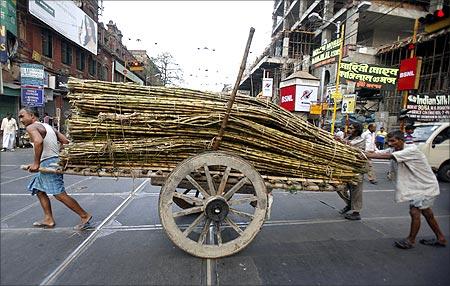
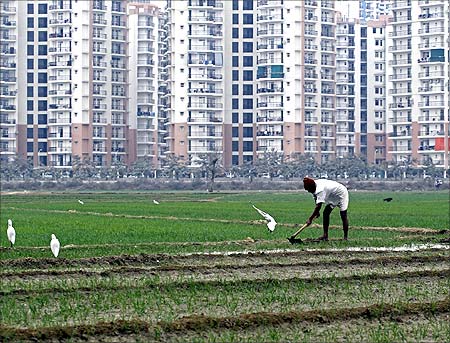
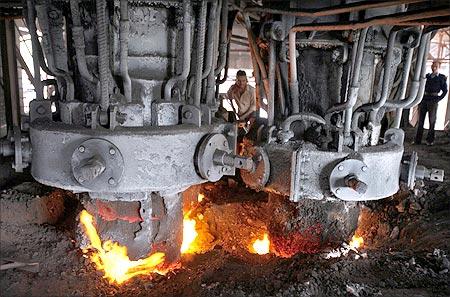
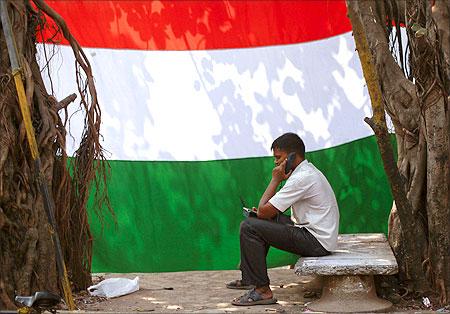
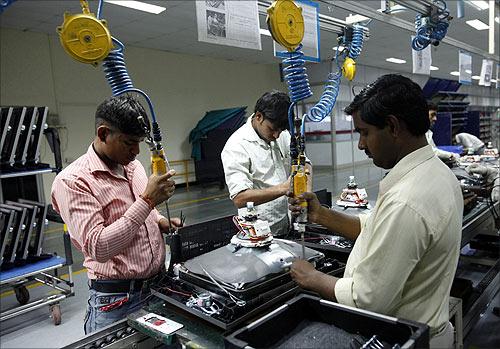
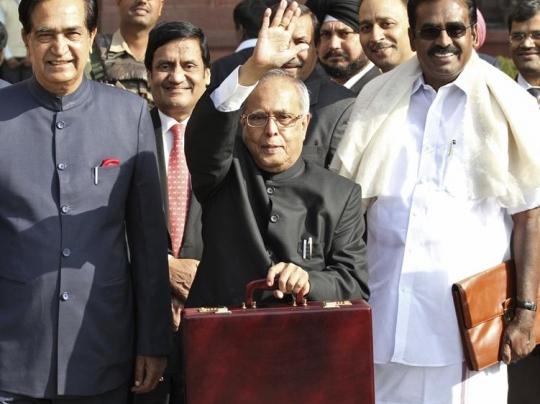
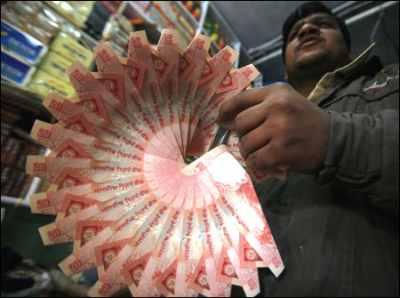
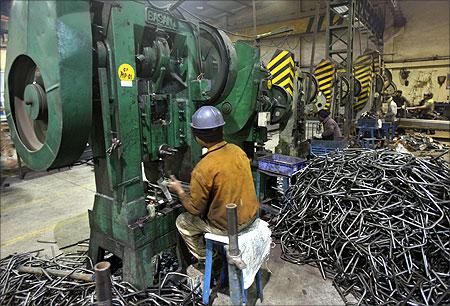
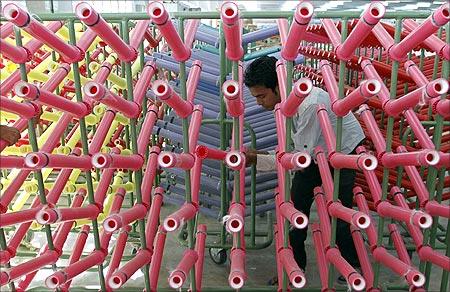
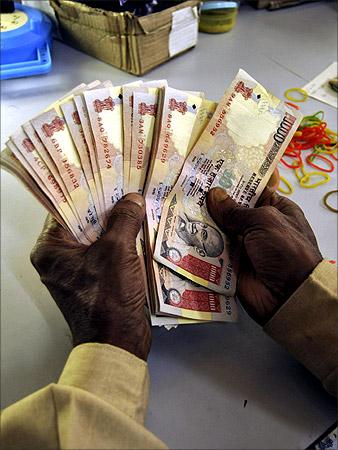
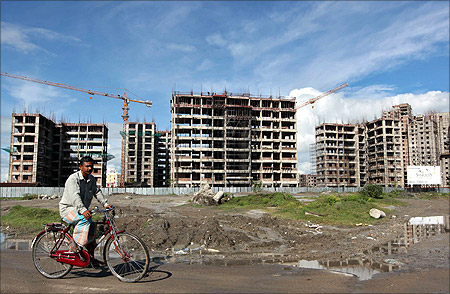
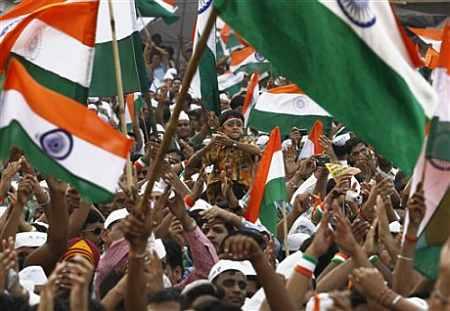
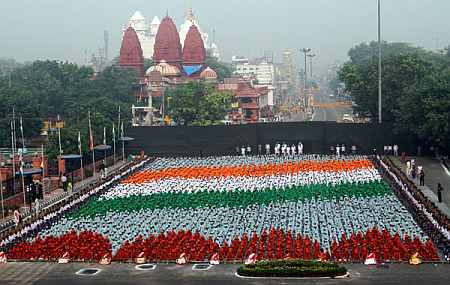
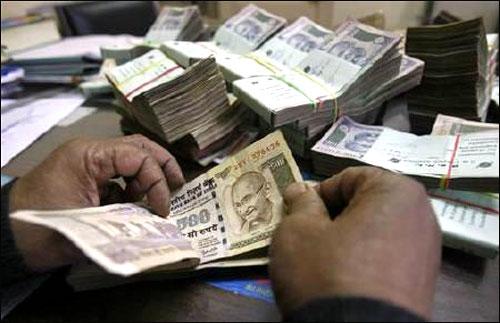
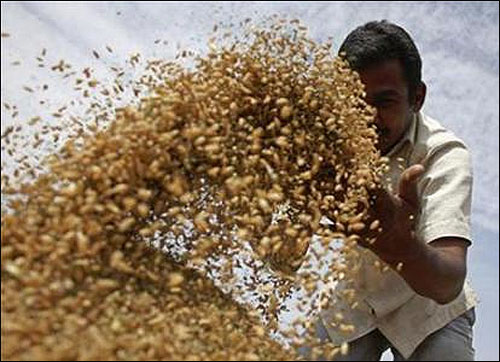
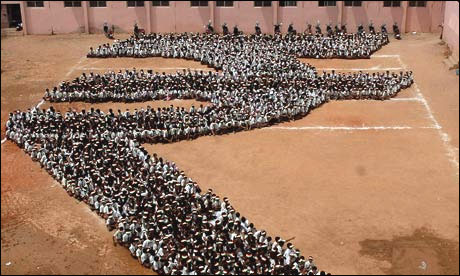
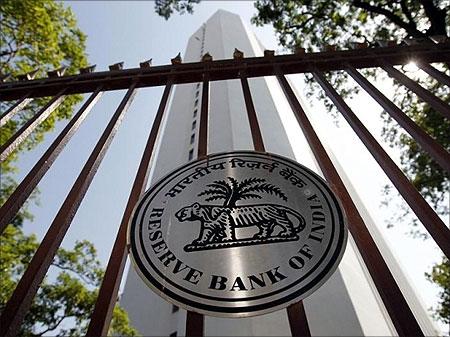
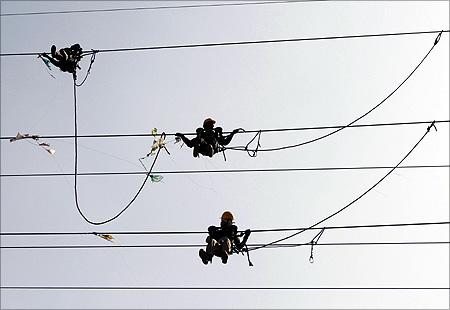
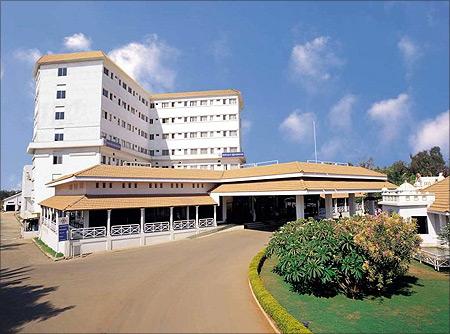
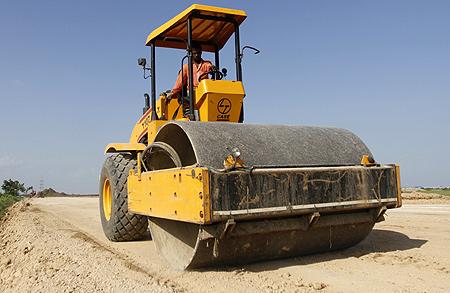
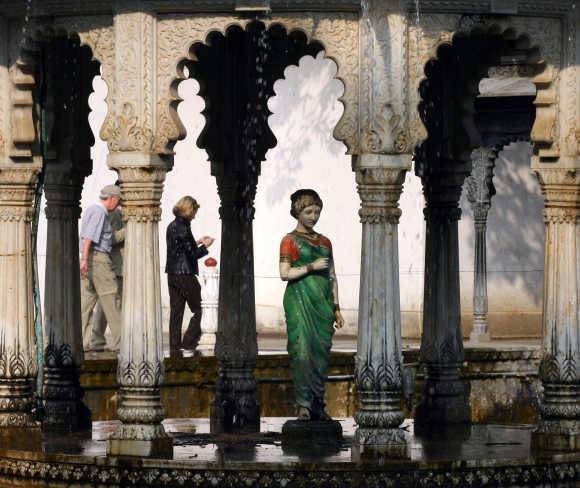
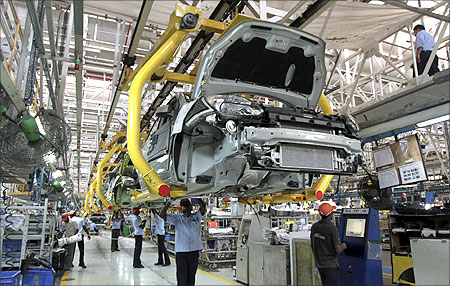
article